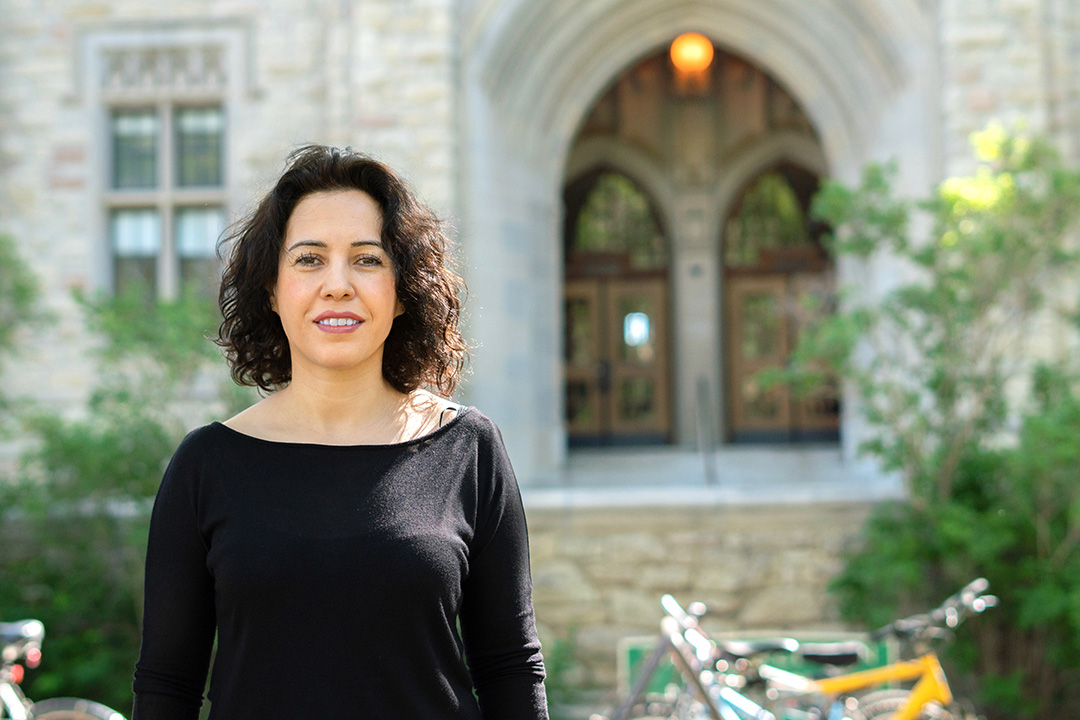
Finding inspiration in innovation
Dr. Leila Dehabadi (PhD'18) came to the University of Saskatchewan (USask) from Iran to conduct innovative chemistry research with industry applications.
By James ShewagaDehabadi earned her bachelor’s and master’s degrees in organic chemistry at the University of Mashhad in Iran before coming to USask to earn her doctorate in physical chemistry.
During her time on campus, she has been inspired to work with colleagues in the College of Engineering and the Global Institute of Water Security, as well as with industry experts, on research initiatives that include developing an environmentally-friendly processing method for biofuels production.
“When I decided to come to Canada, it was very important for me to work on research which has applications, especially in industry,” said Dehabadi, whose thesis was titled Development of biopolymers and their modified forms as sustainable sorbent materials. “I found that my supervisor (Dr. Lee D. Wilson (PhD), associate professor of chemistry) got me motivated to come and work with him because working on research that improves industry is very important.”
Dehabadi developed new materials and methods for separating water and ethanol, essential in biofuel production and the food industry. Her research findings, published in ACS Sustainable Chemistry and Engineering in 2016 and 2017, could help reduce costs for industry while also reducing energy inputs and greenhouse gas emissions.
After earning her PhD in 2018, Dehabadi has continued to conduct research on campus, doing post-doctoral work in Dr. Wilson’s lab, The Wilson Group.
“The major thrust right now is harvesting energy out of thin air, which basically is capturing water vapour using some of the absorbent materials under development in our lab,” said Wilson.
While she was fluent in Farsi, coming to Canada helped Dehabadi become proficient in English as well, while excelling in the lab and in the classroom.
“I would say when she first came here she struggled at times with English, but she soon mastered the language, as well as the language of chemistry at the cutting edge,” said Wilson.
Dehabadi has earned a number of awards and scholarships during her time at USask, and will continue her work throughout 2019 at the university that has become her second home.
“My favourite part of the University of Saskatchewan is the friendly people and very good facilities in our department to help me do my research, and very supportive professors in our department,” said Dehabadi. “It was very good for me to continue my research and have success in my PhD program.”
The University the World Needs
People of the plan
The University of Saskatchewan’s new seven-year plan through to 2025 is titled The University the World Needs and has been gifted the Indigenous names nīkānītān manācihitowinihk (Cree) and ni manachīhitoonaan (Michif), which translate to “Let us lead with respect.” In each issue of On Campus News in 2019, we will take a look at the 12 major goals of the new plan by profiling individuals involved in the university’s commitment to Courageous Curiosity, Boundless Collaboration and Inspired Communities.
Article re-posted on .
View original article.

